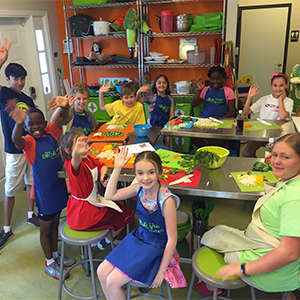Your next prescription from your doctor just might be a recipe.
Until recently, pediatricians and primary care doctors were missing one
very important element in their medical school education. They weren’t
taught nutrition-based science, which is knowledge they can use to improve
their patients’ lives.
In a country where being overweight is the new normal, and junk food is an
everyday snack, nutrition is no longer taking a back seat and is finally
being recognized by medical schools and doctors for its importance in
keeping patients healthy.
One pediatrician in Fredericksburg, Virginia, Dr. Nimali Fernando, noticed
that most of her patients’ concerns could be improved or eliminated, not
through a prescription, but through eating a healthy diet.
She learned that poor food choices can often be the root of many seemingly
unrelated issues.
“With so many processed and convenience foods available, so many families
have lost sight of the connection between food and health. While many of
these foods seem to fit in our busy schedule, they may be setting us up for
chronic diseases later on. Diet-related diseases like coronary artery
disease often start in early childhood,” says Dr. Fernando. “It’s important
for families to make their health a priority through healthy eating and
being physically active. Parents hold the key to making this happen by
being role models and providing a culture of wellness in the home,” she
adds.
Dr. Fernando began teaching her patients how to cook and prepare healthy
foods in a church kitchen, and in 2014 opened Yum Pediatrics, a
nutrition-based pediatrics practice that includes a 600-square-foot
teaching kitchen. “I needed to do more than just give patients a pamphlet.
I had to have a kitchen in my office. I try to give a lot of prescriptions
that are just recipes to see if we can fix an issue with food,” says Dr.
Fernando.
She says that a benefit to having a kitchen next to her office is that
during the appointment she can show her patients how to incorporate foods
into their diets that they may need. For instance, if
she suspects a child’s condition is the result of not eating enough fiber,
she can demonstrate to the child how fiber can easily be incorporated into
meals by grinding flaxseed. Her practice also has an instructional garden
where she can teach kids and families about growing healthy foods.
One of the worst health offenders in children’s diets is sugar. It’s
estimated that on average, 16 percent of a child’s daily calories are from
added sugars, which are sugars not found naturally in food, but are added
to it. Eating too much sugar can lead to obesity, heart disease and
diabetes. Doctors can educate their little patients on the various ways
they can add sweet taste to foods in a healthy way.
Dr. Fernando is also one of the founders of the Dr. Yum Project, an
organization with the mission of transforming lives by providing people
with an understanding of the connection between food and overall health,
and empowering them with tools to live a healthy life. The nonprofit offers
healthy cooking and child nutrition classes, cooking camps for kids,
hands-on cooking instruction for families, first foods classes, a teaching
garden and online tools to help families make healthier meals. The Project
also offers a preschool nutrition program that has about 600 participating
preschoolers in 40 classrooms.
One of the nonprofit’s free online tools, the Meal Maker Machine, allows
people to enter ingredients they have in their pantry and then produces
healthy recipes within seconds. It gives parents the ability to easily and
quickly create their own unique recipes, and allows kids to have fun
creating a recipe they can make. Another benefit to using the tool is that
it allows families to take food allergies and dietary preferences into
account when creating recipes.
“Many people just don’t know what to cook, which is why this tool is so
important for families to check out,” added Heidi DiEugenio, a director at
the Dr. Yum Project. “It takes the guesswork out of what to make for
dinner, and uses the ingredients you already have in the kitchen. In
addition to the Meal Maker Machine, we also created Doctor Yum’s Meal
Planner, a free tool from which families can build a weekly menu and
shopping list, based on prep time as it aligns with evening activities.
With the click of a button you can even get a shopping list sorted by the
grocery department.”
Dr. Fernando isn’t the only one incorporating nutrition and cooking into
her practice. Doctors and medical groups around the country are seeing the
impact that diet has on overall health, and are creating food pantries and
kitchens right next to their practices as a result. Medical schools are
also beginning to introduce nutrition science and culinary curriculums into
their programs.
To learn more about The Doctor Yum Project, visit
doctoryum.org. Dr.
Fernanado is also co-author of the book “Raising a Healthy, Happy Eater: A
Stage-by-Stage Guide to Setting Your Child on the Path to Adventurous
Eating,” which can be found in bookstores online.


